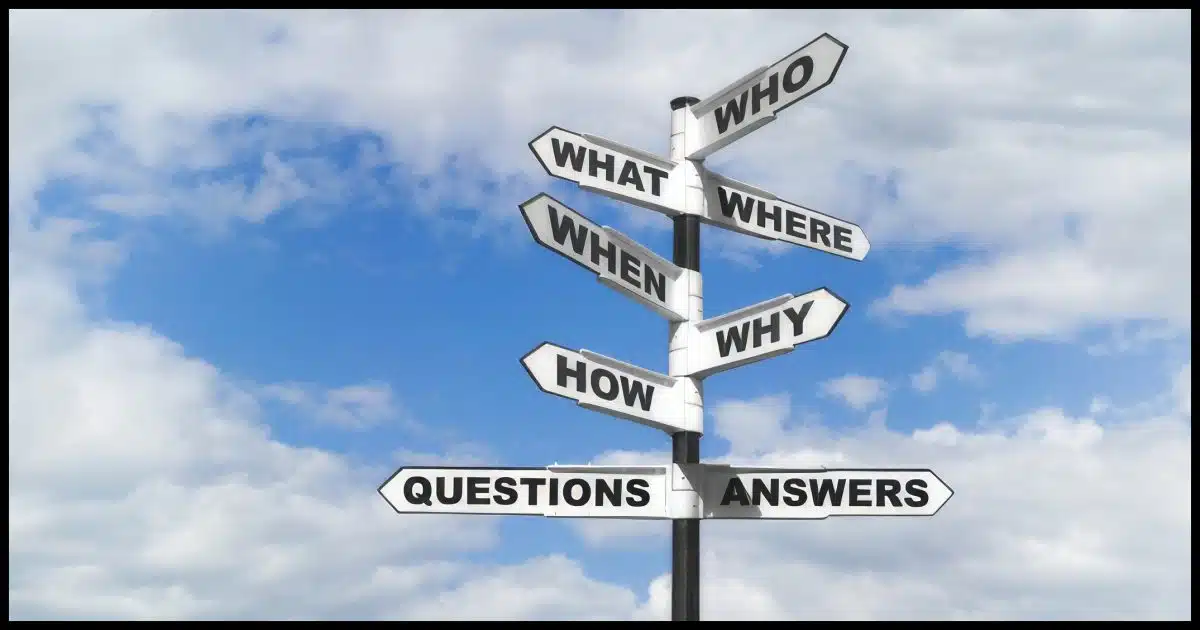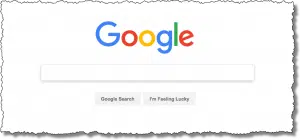How my deep, dark secret can help you.

Once I answered a question from a reader, and they responded to the answer by saying, “So easy when you know how.”
I don’t know if they were making an honest observation or a snarky comment (I suspect the former), but I started thinking about what I’ll call my deep, dark secret.
I didn’t know how. In fact, I often have absolutely no clue.

Knowing versus finding
It’s not just what you know but your ability to find the information you need that’s invaluable. I often don’t know the answers, but I know where and how to look for them. This approach, plus a willingness to learn, turns searching for answers into a useful skill for many situations, not just tech.
But I know how to get a clue
When I don’t know an answer, the skill I bring is this: knowing where or how to look and what to look for.
I know how things more-or-less normally work, and I extrapolate from there.
Then I test my assumptions by taking a look, perhaps experimenting a little, and thus discovering The Answer.
I didn’t know the answer. I found it.
Help keep it going by becoming a Patron.
What you know is important, but…
A certain amount of knowledge matters, of course, but often it’s not what you know that makes the difference.
What matters more — often much more — is your willingness and ability to take what you already know and build on it to discover solutions. It doesn’t work in all cases, but it works more often than you might think.
I “know” a lot less than people think I do. I’m just good at finding answers.
And you could be too.
Watch me in action
I had a visitor recently, and I was showing her how to do a few things on her new Windows laptop.
At times, it seemed like I didn’t know what I was doing; I probably didn’t. And I’m always a little self-conscious when someone’s looking over my shoulder. Yet I ended up with the information that she needed.
I often don’t know what I’m doing specifically. I regularly switch between not only assorted versions of Windows, but also between Windows, Mac, and Linux. There are too many specific details across all those platforms to hold in my little brain.
It gets even worse because much of what I was showing my visitor (and indeed, many of the questions I get every day) don’t apply to how I personally use my computers. For example, I rarely run Windows File Explorer — I’m either in the command-line mode or using a dual-pane Explorer replacement, xplorer2. But that doesn’t prevent me from demonstrating or answering questions about File Explorer.
It applies to programming too…
Many current and common computer programming languages are similar in many respects. Without getting into religious debates (which programmers love to do), programming languages like Python, Java, JavaScript, Perl, PHP, C++, and others all share many common concepts and often similar syntax that is all derived from a common ancestor: the C programming language.
They’re similar but not identical.
Because I regularly find myself playing around with PHP, Perl, Javascript, and Python, things can get very confusing very quickly. “What’s the exact syntax for X?” and “What order do the parameters to Y go in?” are common questions that I find myself re-confirming frequently. I kind of/sort of know the answer — I know what the answer should “look like” — but I don’t know or have difficulty recalling the specifics because they vary depending on what I’m doing in which language at the time.
Instead, I know how to quickly find the answer.
Google (or Bing, or YouTube, or of late, DuckDuckGo) is my friend.
Skill trumps knowledge
Instead of exhaustive knowledge about hundreds of thousands of little details, what I have is the skill to discover — and perhaps re-discover — what I need on the fly.
Instead of knowing, I know how to find out.
With the enormous amount of information at our fingertips these days, and more arriving and changing every day, knowing how to find what you’re looking for is a valuable skill.
It could be as simple as becoming better at using search engines or the search options on various websites. Seriously, I search my own site constantly. Many of my emailed answers are nothing more than me or one of my assistants acting as a slow search engine, interpreting submitted questions and returning a link to an existing article that has the answer. Imagine how much information you could find and use more quickly with the proper search skills! And it doesn’t have to be about computers; I’ve used search techniques to help me do something as low-tech as pulling fence posts.
Being able to recognize patterns and extrapolate from them is almost as important. Earlier, I wrote, “I know how things more-or-less normally work and I extrapolate from there.” I look at how things normally work in similar cases and test an assumption that things might work similarly in the case I face. It doesn’t always work (and I agree, it’s frustrating when it doesn’t), but quite often it does, and it can quickly lead to solutions that would otherwise remain out of reach.
Do this
Knowledge is power, and yet…
Having the ability and the skills to find what you need when you need it is more powerful still.
I strongly recommend that instead of accumulating knowledge, you invest in the skills associated with finding the knowledge you need as you need it. That could mean search engine techniques, communication skills, learning terminology, or just paying close attention to the patterns you see and learning how to extrapolate them.
It’ll save you time and make you more self-reliant.
Here’s one place you can look: Subscribe to Confident Computing! Less frustration and more confidence, solutions, answers, and tips in your inbox every week.






When I was hired, Leo’s test was a series of questions to find specific information via a search engine. He didn’t even want to see my resumé or education. I’m constantly using a search engine in my work. I even use an AI chatbot occasionally now to get the phrasing correct. One important caveat with AI chatbots is to check the included reference links to ensure the bot isn’t getting the facts wrong.
What Leo says applies to most technical disciplines. when faced with a problem the first step is not to panick and freak out. Understand the issue, break down the problem into smaller pieces and find solutions. Also, don’t be afraid to think out of the box, improvise and try different options. One critical skill many people don’t have is patience and perseverence.
The key to success is first the willingness to acknowledge and confront uncertainty & ignorance.
The second key is the willingness to explore guided by intuition & experience.
Once you’ve found the information you need what’s often missing is the ability to understand it. Without understanding the information is useless – so, turn to Leo or start learning and life becomes an adventure. At 85 I’m still adventuring.
Thanks Leo.
One thing Leo is great at is translating computerese into English. His latest article update is Terminology matters and Ask Leo! is a great place to learn computer terminoogy.
I search the Internet regularly to discover how to do things, especially when I’m using one of my GNU/Linux distributions. When I find that I’ve made the same search a few times, I add the information I’ve found to a text document I keep for each distribution I use (\Notes.txt). I do a similar thing for both Windows 10 and 11. Since I use Firefox as my default web browser, everywhere, I also use Firefox’s History feature to re-open web pages I’ve visited before. It’s not what I already know that’s important to me, it’s my ability to find the information I need that’s most important. For example, I don’t always know/remember the correct technical term I need for a search, so I start with a “What is” type of search. When keyword searches don’t get me what I want, I try using whole sentence searches, or \:search term/sentence.
Note: I don’t know whether this site supports escape characters (\\). If it does, everything I’ve posted should look correct, if not, this post may be a bit confusing.
Ernie (Oldster)
I do something similar with questions I research for Ask Leo!. I have a folder of text files and I name each one with a a hint of the question it answers.
It looks as if I’ve learned something new about Leo’s site. It doesn’t support Mark Down syntax. I’m sorry if my post above isn’t very clear,
Ernie
It does support limited HTML though.
Leo,
All good advice, that I too have been doing for years (as the local ‘nerd’ for my family and friends). But one step I add is this:
Having ‘discovered’ and tested a solution to a computer problem, I write the solution technique into a text file, ‘!PC_tips&tricks.txt’ (currently ~630KB), prefixed with the date solved and a brief description of the initial problem. The leading ! places it at the top of the name-sorted Xplorer2 pane, but I also have it bookmarked in Xplorer2.
Then, next time I encounter that same problem (which happens, sometimes with regularity), I just do a search through my text file with appropriate search terms.
Do that enough and you could build a web site.
I own an IT service company and have referred to myself more than once as a “Professional Googler”. Almost any problem can be solved by using your own intuition and finding information from someone who had that problem before you. The internet is a wonderful and horrible resource, the skill is to sift through all of the chaff to get to the wheat in an efficient manner.
“The internet is a wonderful and horrible resource” – so true.
All technology is a double edged sword.